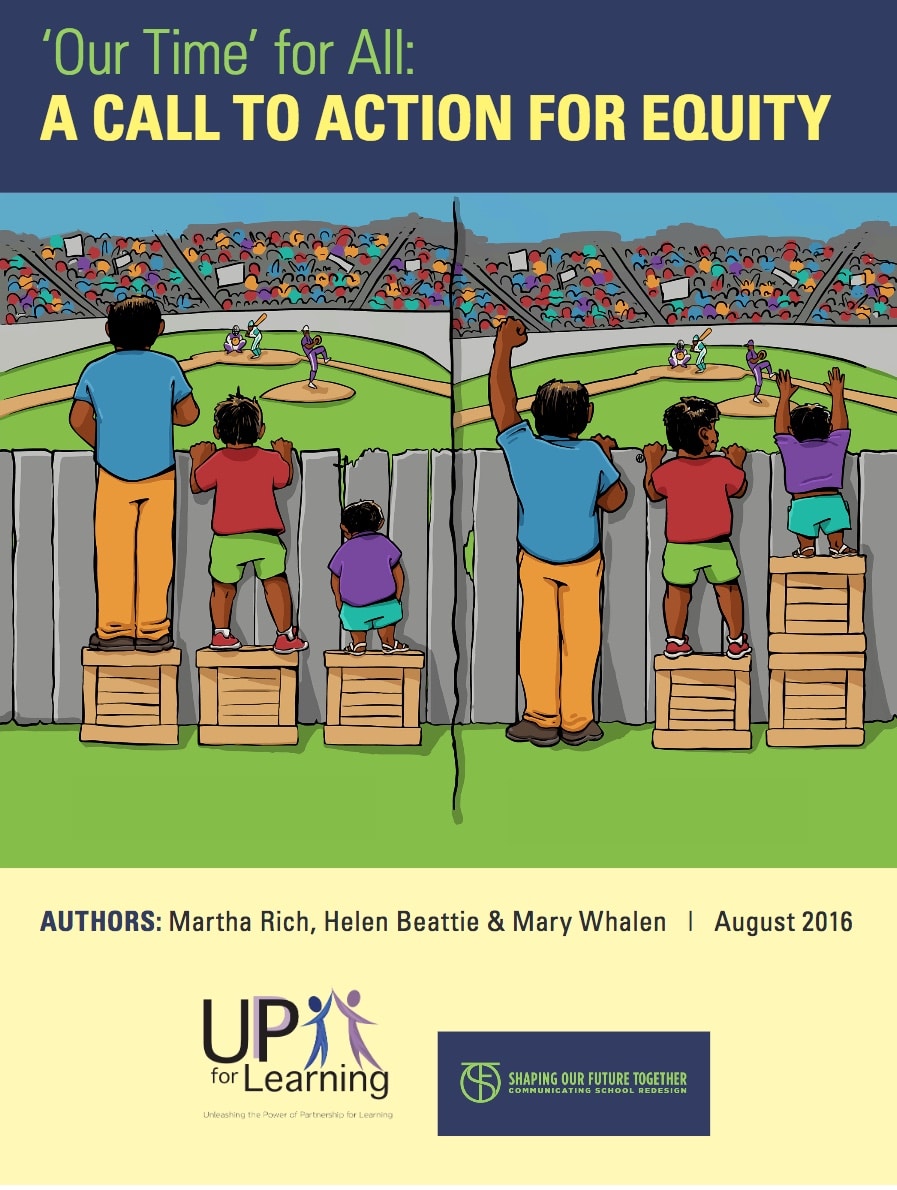learn more about our summer learning opportunities
 Student-centered learning requires a fundamental shift in the student-teacher relationship to one of partnership. Similarly, the success of school redesign efforts rests on mobilizing young people — primary stakeholders in education — as partners in the change process.When youth work closely with adults toward shared goals, they gain skills and confidence for lifelong learning and civic engagement. When adults work closely with youth as partners, the opportunity to learn from students’ insights and unique perspectives often renews a professional sense of purpose and shifts teaching toward more student-centered practices.Yet students are often overlooked as co-constructors of learning and agents in education redesign. Unfortunately, there remains a pervasive societal belief that high school students are too young, too immature, or not yet wise enough to contribute in a meaningful way. This could not be further from the truth. Of course, educators bring a wealth of professional expertise to school redesign efforts; they have a systems-level perspective and a wide array of knowledge and skills about education accrued over time. Less understood is the fact that young people have an insiders’ perspective on the learning experience adults cannot fully fathom. They are highly invested in shaping the world that will hold their life story and feel a deep desire to make a difference now. Young people have the wisdom, creativity, and proven capacity to partner in school remodeling efforts, ensuring integrity in the process.When young people are challenged to bring forth their best efforts, adults similarly rise to the occasion. Both parties grow in their understanding and commitment to change, grappling with the complexity of classroom learning and the school change process from the diverse perspectives of both key stakeholder groups. Youth-adult partnership unleashes a previously untapped source for enhanced problem solving, increased engagement in learning and teaching, and expediting school redesign.
Student-centered learning requires a fundamental shift in the student-teacher relationship to one of partnership. Similarly, the success of school redesign efforts rests on mobilizing young people — primary stakeholders in education — as partners in the change process.When youth work closely with adults toward shared goals, they gain skills and confidence for lifelong learning and civic engagement. When adults work closely with youth as partners, the opportunity to learn from students’ insights and unique perspectives often renews a professional sense of purpose and shifts teaching toward more student-centered practices.Yet students are often overlooked as co-constructors of learning and agents in education redesign. Unfortunately, there remains a pervasive societal belief that high school students are too young, too immature, or not yet wise enough to contribute in a meaningful way. This could not be further from the truth. Of course, educators bring a wealth of professional expertise to school redesign efforts; they have a systems-level perspective and a wide array of knowledge and skills about education accrued over time. Less understood is the fact that young people have an insiders’ perspective on the learning experience adults cannot fully fathom. They are highly invested in shaping the world that will hold their life story and feel a deep desire to make a difference now. Young people have the wisdom, creativity, and proven capacity to partner in school remodeling efforts, ensuring integrity in the process.When young people are challenged to bring forth their best efforts, adults similarly rise to the occasion. Both parties grow in their understanding and commitment to change, grappling with the complexity of classroom learning and the school change process from the diverse perspectives of both key stakeholder groups. Youth-adult partnership unleashes a previously untapped source for enhanced problem solving, increased engagement in learning and teaching, and expediting school redesign.
Creating and sustaining an authentic youth-adult partnership is no easy task. Few members of either generation have experienced this paradigm shift. This change can feel risky and foreign, sparking fears, hidden assumptions, and confusion. Similar to any other culture shift, youth-adult partnership requires frequent tending through reflection, dialogue, and ongoing goal setting. These are the means to fend off the human tendency to return to the status quo. Partnerships are also the way to create highly engaging and vital learning communities for students and teachers alike.
At UP for Learning, we believe we all must play our part in uprooting and rebuilding the systems behind inequities.
For our part, we commit to continuing our work to become an inclusive, anti-racist organization and community. We commit to continuing to listen, change and grow.
Creative material developed by UP for Learning is protected under a Creative Commons Attribution- Non-Commercial 4.0 International License.
We strive to make our website accessible to all audiences, including those with disabilities.
![]() For more information: [email protected]
For more information: [email protected]